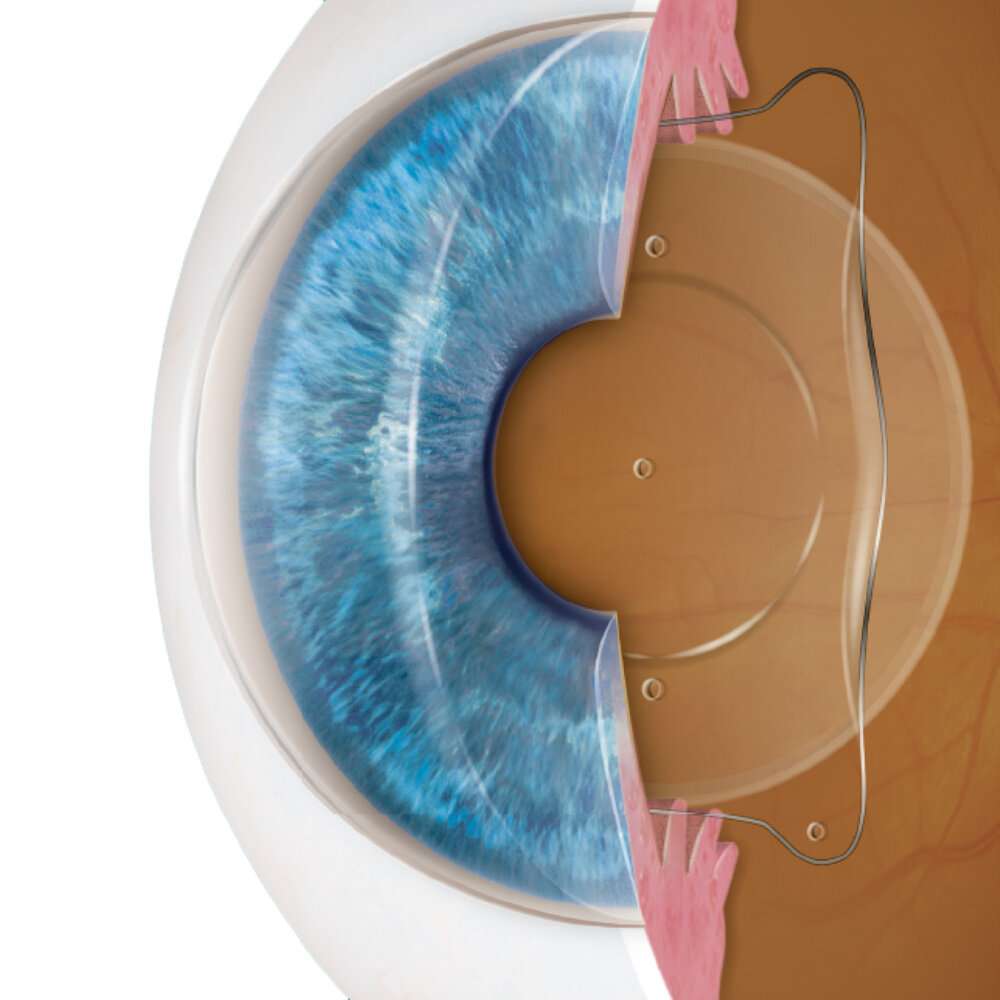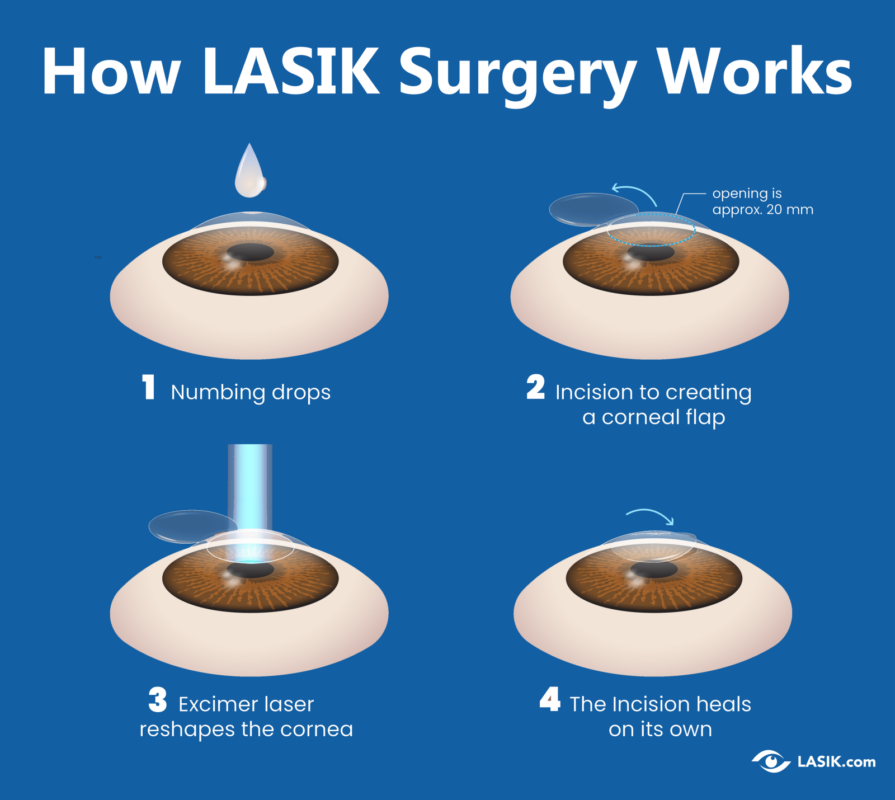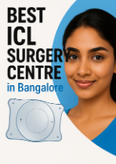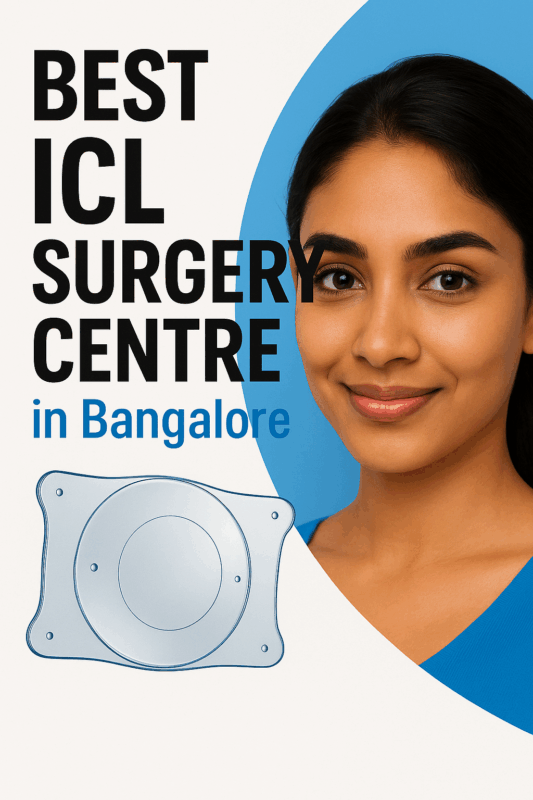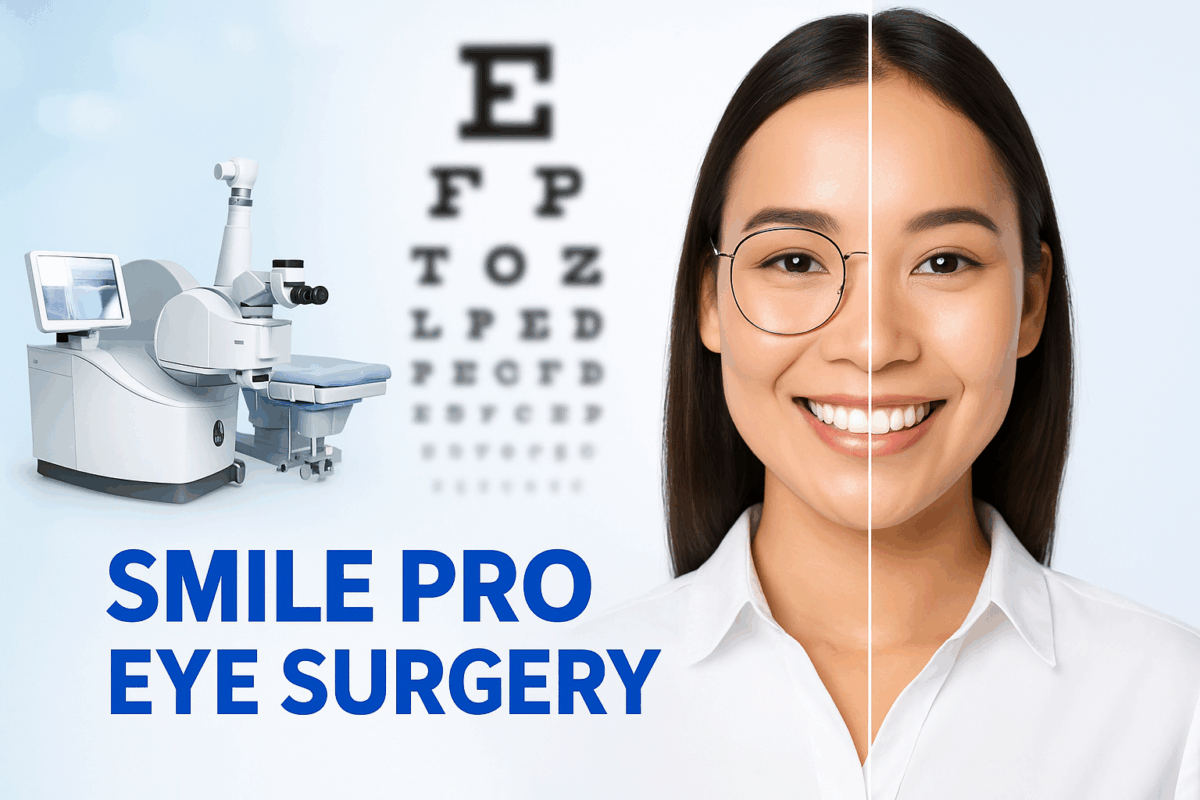In today’s fast-paced world, visual clarity and comfort are essential for a high-quality life. With technological advancements, there are now various options available for correcting vision problems, and one such innovative solution is the Implantable Collamer Lens (ICL) procedure. If you’ve been considering a vision correction method that offers exceptional results, minimal downtime, and long-lasting effects, the ICL procedure might be the answer you’ve been seeking.
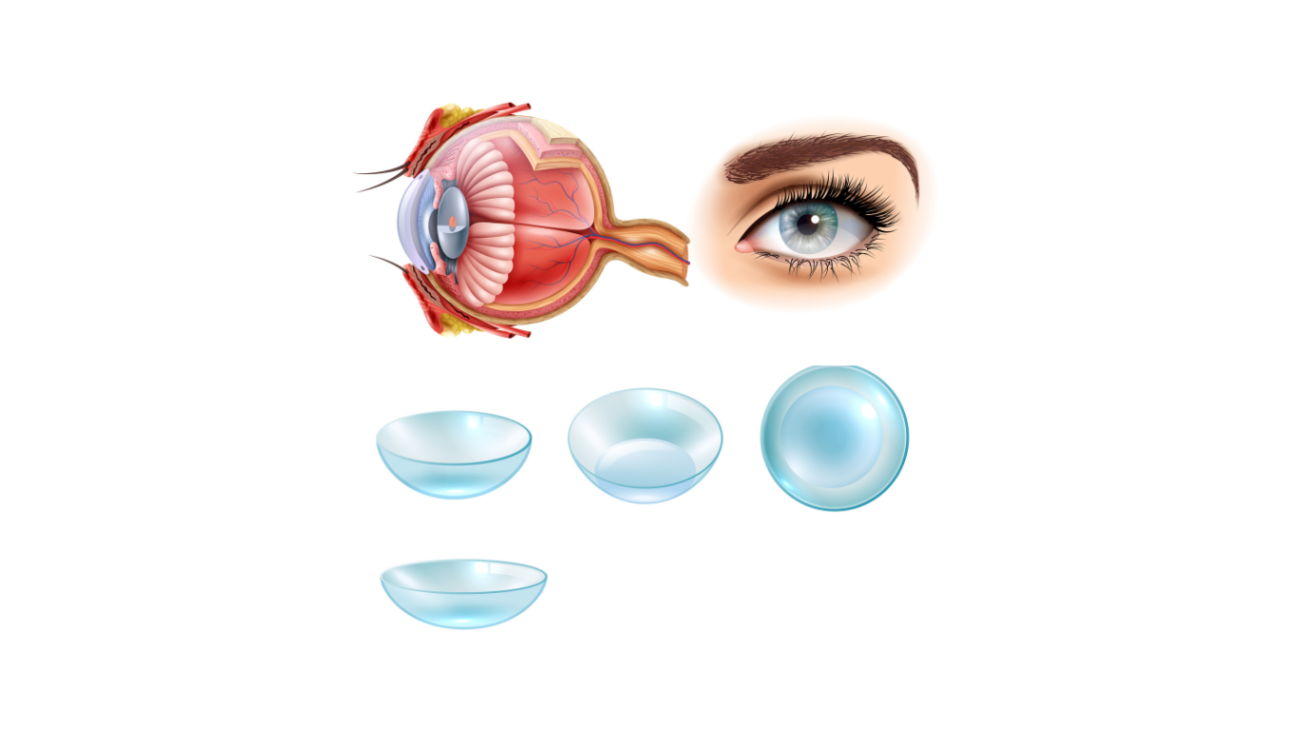
Understanding theICL procedure:
The ICL procedure involves the implantation of a micro-thin lens behind the iris and in front of the eye’s natural lens. This lens, made of a biocompatible material, works in harmony with the eye’s natural components to correct refractive errors and improve vision.
2. Advantages Over Traditional Methods
Unlike traditional methods, such as glasses or contact lenses, the ICL procedure offers permanent vision correction. It provides sharp and clear vision without the hassles of maintenance or daily wear. Additionally, the procedure is reversible and can be adjusted if your vision changes over time.
3. Eligibility Criteria for ICL Surgery
Ideal candidates for the ICL procedure are individuals who are between the ages of 21 and 45, have stable vision for at least a year, and are not suitable candidates for LASIK due to thin corneas. A thorough eye examination will determine your eligibility for the surgery.
4. Preparing for Your ICL Surgery
Before the surgery, your ophthalmologist will conduct a series of tests to assess your eye health and determine the appropriate lens power. You will receive instructions on how to prepare for the surgery, which may include temporarily discontinuing the use of contact lenses.
5. The ICL Surgical Process
The ICL procedure is typically painless and takes about 15 to 20 minutes per eye. You will be given a local anesthetic to ensure your comfort during the surgery. The surgeon will make a small incision, insert the folded lens, and position it precisely behind your iris.
6. Recovery and Postoperative Care
Recovery from the ICL procedure is usually swift. You might experience mild discomfort or blurry vision initially, but this will subside quickly. Your ophthalmologist will provide detailed postoperative care instructions to ensure proper healing.
7. Comparing ICL with LASIK
While LASIK is a popular vision correction method, it might not be suitable for everyone. ICL offers an alternative for individuals with thin corneas or higher refractive errors. Unlike LASIK, ICL doesn’t involve corneal reshaping, making it an attractive option for those seeking reversible and versatile solutions.
8. Addressing Concerns and Common Myths
Some misconceptions exist about the ICL procedure. It’s important to clarify doubts such as whether the lens can be felt or if the procedure poses a risk of cataract. Your ophthalmologist can provide accurate information and alleviate any concerns you might have.
9. Life After ICL Surgery
After the ICL procedure, you’ll experience significantly improved vision. You can bid farewell to the inconvenience of glasses or contacts. Engage in activities like swimming or sports without worrying about eyewear, and relish the newfound freedom and clarity of vision.
10. The Future of Vision Correction
As technology evolves, so does the field of vision correction. Ongoing research aims to enhance the ICL procedure even further, ensuring safer and more precise outcomes for patients seeking exceptional visual acuity.
11. The Cost of ICL Surgery
The cost of ICL surgery varies based on factors like location, surgeon’s experience, and the complexity of your case. While the initial investment might seem higher than glasses or contacts, the long-term benefits make it a valuable and cost-effective solution.
12. Testimonials from ICL Recipients
Real stories from individuals who have undergone the ICL procedure can provide insights into the life-changing impact of the surgery. Many report improved quality of life, enhanced confidence, and a renewed enthusiasm for activities that require clear vision.
Frequently Asked Questions (FAQs):
Q1: Is the ICL procedure painful?
No, the procedure is virtually painless. Patients might experience minor discomfort during the recovery period.
Q2: Can the lens be removed?
Yes, one of the advantages of the ICL procedure is its reversibility. The lens can be removed or replaced if necessary.
Q3: How soon can I resume work after the surgery?
Most patients can return to work within a few days of the procedure, following their doctor’s advice.
Q4: Will I still need reading glasses after ICL?
If you had presbyopia before the surgery, you might still require reading glasses. However, your distance vision will be significantly improved.
Q5: Is the ICL procedure safe?
Yes, the ICL procedure is considered safe. Like any surgery, it carries minimal risks, which your surgeon will discuss with you.
Author Details:
Dr. Sushruth Appajigowda holds a prominent position as a Cornea, Cataract, Glaucoma, and LASIK Surgeon in Bangalore. He serves as the chief Cataract and Refractive surgeon at Vijaya Nethralaya Eye Hospital, Nagarbhavi Bangalore. Renowned as one of the finest LASIK surgeons nationwide, he brings with him over 12+ years of experience across multiple LASIK platforms, including ZEISS, ALCON, SCHWIND, AMO, and Bausch and Lomb. Having successfully conducted over 5000 LASIK procedures, Dr. Sushruth holds the title of a Certified Refractive Surgeon and a Fellow of the All India Collegium Of Ophthalmology. Furthermore, he stands as a distinguished speaker at various National and International Forums, using his expertise to guide you in selecting the most suitable procedure based on your health requirements.

Conclusion: ICL procedure
The ICL procedure has revolutionized vision correction by offering a long-term solution for those seeking clear and unaided vision. With its minimally invasive approach, quick recovery, and remarkable outcomes, it stands as a testament to the advancements in medical science that continue to enhance our lives.

